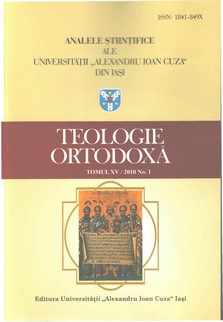Orthodox Monasticism: Applying Authority Democratically
Orthodox Monasticism: Applying Authority Democratically
Author(s): Dan SanduSubject(s): Christian Theology and Religion
Published by: Editura Universităţii »Alexandru Ioan Cuza« din Iaşi
Keywords: monasticism; renounciation; authorit; reclus; abbot; spiritual father; hermit; monastery; disciple
Summary/Abstract: It is not easy for the contemporary person to accept authority as such, unless he/she judges and experiences it in all its aspects. A different approach is to live out with the authority which one did not know previously in the so called “monastic settlement” where one cannot speak of “democracy” or “rights”. According to the monastic regulations, a monastic community is based on an authority which is freely accepted by and large, and starts with the nomination of the Father Superior in the office by his bishop. Beyond the authority of God who is the key concern for the monastic’s sense of life, there is a freely accepted authority of the Spiritual Father and the Abbot. This authority is based on love of both sides, and above all, love for God, for whose sake somebody renounces the world and accepts a life often full of renunciation. The study above is a short exposure of how the land of Eastern Romania came to experience the monastic vocation along its history and how it is lived out now within an every day more secularized world.
Journal: Analele Ştiinţifice ale Universităţii »Alexandru Ioan Cuza« din Iaşi. Teologie Ortodoxă
- Issue Year: 2010
- Issue No: 1
- Page Range: 41-46
- Page Count: 6
- Language: English

